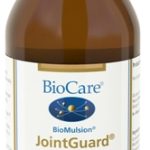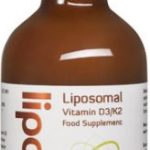One of the unalterable truths of our lives is that we all get older. Like it or not, as the years pass we have to take more care of our physical selves because our bodies age; the cells within them aren’t replaced when they die as much as in our younger years. And this is no truer than when it comes to our joints.
Joints are the connections between our bodies’ bones, as such it’s thanks to them we’re able to move – bending our arms at the elbow and legs at the knees, bend our backs, turn our heads and move our fingers and toes. Each joint features cartilage and synovium, along with the lubricant that’s synovial fluid, ensuring that two bones meeting at a joint don’t rub together and damage each other.
It’s here, however, that advancing years prove a problem; as we age it becomes easier to tear and wear out cartilage, damaging the joints and potentially leading to the onset of arthritis. Not a pleasant prospect. How best to preserve the health of your joints then and keep them working effectively?
Watch your weight
Sadly, it’s impossible to prevent the ageing process, but we can all take other steps that’ll help our joints (and general health); one of which is to try to ensure we don’t become overweight or even obese. This is because it’s the joints that take much of the stress of our weight when we move, especially in the knees, hips and back.
Many issues that people have with their joints can be traced to carrying too much weight. To that end then, losing weight can be a simple way to reduce potential joint injury – indeed, studies suggest that as many as four times the normal level of stress is felt by a joint for every extra pound in weight a body gains
Stay in shape
Another straightforward, if unsurprising way to help your joints is to take up regular physical exercise, not least as it can help you to lose extra pounds, of course. Indeed, it’s believed that throwing yourself into aerobic exercise – which momentarily increases your heart-rate – is a good way to reduce swelling of the joints1. That said, if your joints are actually giving you pain then low-impact aerobic exercise, such as bicycling or swimming, are a good step forward.
When you stop and think about it, though, the idea of getting up and doing some exercise makes sense. Our bodies are physical entities; they need to be (mildly) put through their paces to work effectively – just like doing a Sudoku game for mental exercise. Sitting still for much of your life does no good for your body and it simply leads to stiffness in the joints; in fact, those who lead such sedentary lifestyles are among the most at-risk groups for developing joint pain as they age.
So, even if you can’t exercise as much as you’d really like to, be sure to get up and walk about the office, don’t slouch and adopt good posture when sitting in your office chair and when lifting and carrying. Plus, take the stairs instead of the lift as often as you can at work and don’t pass up the opportunity to take the dog for a brisk walk. The body will doubtless thank you for it!
Dietary Tips
Less obvious, perhaps, is the fact that eating certain foods and avoiding others can also promote good joint health. A generally healthy diet is a great start, as it – along with all the other benefits for your body – helps to ensure your bones and muscles grow and remain strong throughout your life. Bone-wise, as you may well know, calcium-rich foods get a big up-tick; dairy products are obviously a good source here, but so too are organic vegetables and fruits like broccoli, figs and kale.
As far as the muscles go, protein is key – aside from lean meats and seafood, for vegetarians then, options include the likes of quinoa, legumes, soy products, buckwheat and a variety of different beans, rice and nuts. Moreover, ensuring your body’s getting enough Vitamin D is important too, as it’s this nutrient that plays a pivotal role in the absorption of calcium from food so it can be used throughout the body1. Some sources suggest that Vitamin C and other antioxidant nutrients are important for maintaining the health of joints as well
Supplements for Joint Health
For some people, altering their diet – especially as they get older and because of other potential health issues – isn’t always easy. And for others getting an adequate amount of regular exercise may prove a challenge too. Help here can be found in natural supplementation. Indeed, do your research; you may find that the following supplements for joints – all available from The Finchley Clinic – suit you well; we sell more besides:
 BioMulsion Joint Guard – an emulsified pure fish oil concentrate, which contains Omega-3 fatty acids, glucosamine hydrochloride, Vitamin E and ginger oil; designed to help maintain the health and flexibility of joints.
BioMulsion Joint Guard – an emulsified pure fish oil concentrate, which contains Omega-3 fatty acids, glucosamine hydrochloride, Vitamin E and ginger oil; designed to help maintain the health and flexibility of joints.
 Collaflex Gold (formerly known as High Strength Collagen) – a pure marine-derived collagen that may aid the slowing of the aging process on the joints.
Collaflex Gold (formerly known as High Strength Collagen) – a pure marine-derived collagen that may aid the slowing of the aging process on the joints.
 Liposomal Vitamin D3/K3 – we believe this is the best, most absorbable liposomal vitamin D3 product (with added Vitamin K3) available in Europe.
Liposomal Vitamin D3/K3 – we believe this is the best, most absorbable liposomal vitamin D3 product (with added Vitamin K3) available in Europe.
Reference:
1. ‘Taking Care of Your Joints’. Webmd.com. http://www.webmd.com/arthritis/caring-your-joints#1. Reviewed: 23 Jan 2016.



